| Title | Adaptive plasticity in the primate spinal stretch reflex: evidence for a two-phase process. |
| Publication Type | Journal Article |
| Year of Publication | 1984 |
| Authors | Wolpaw, J, O'Keefe, JA |
| Journal | The Journal of neuroscience : the official journal of the Society for Neuroscience |
| Volume | 4 |
| Pagination | 2718–2724 |
| Date Published | 11/1984 |
| ISSN | 0270-6474 |
| Keywords | Time Factors |
| Abstract | Monkeys can slowly increase or decrease the amplitude of the purely spinal, largely monosynaptic portion of the response to sudden muscle stretch, the spinal stretch reflex (SSR), when confronted by a task requiring such change (Wolpaw, J.R., V.A. Kieffer, R.F. Seegal, D.J. Braitman, and M.G. Sanders (1983) Brain Res. 267: 196-200; Wolpaw, J.R., D.J. Braitman, and R.F. Seegal (1983) J. Neurophysiol. 50: 1296-1311). Change occurs without alteration in initial muscle length or in background activity of agonist, antagonist, or synergist muscles. This study uses composite curves to describe in detail the development of SSR amplitude change. It reveals important, previously unexpected features of this development. SSR increase or decrease appears to occur in two distinct phases. Phase I, a nearly immediate 8% change, occurs within the first 6 hr. Phase II, a 2%/day change, continues for at least 2 months. Although phase II is much slower than phase I, its final magnitude is far greater. Phase I indicates a nearly immediate change in suprasegmental influence of the segmental arc of the SSR. Because stretch onset time is unpredictable and the SSR occurs before any other possible response, this change in descending activity must be tonic; it must be present continually, day after day, for the 5 to 7 hr/day the animal spends at the task. Phase I produces a rapid and significant increase in reward probability. Thus, it may be readily interpreted as an example of operant conditioning, provoked by the reward contingency.(ABSTRACT TRUNCATED AT 250 WORDS) |
| URL | http://www.ncbi.nlm.nih.gov/pubmed/6502200 |

